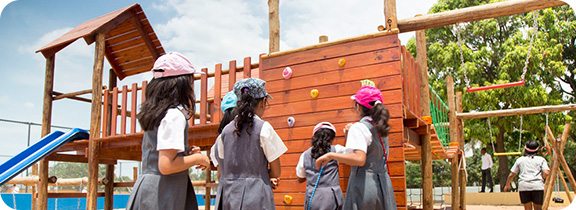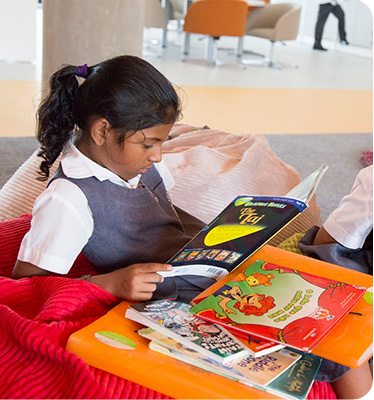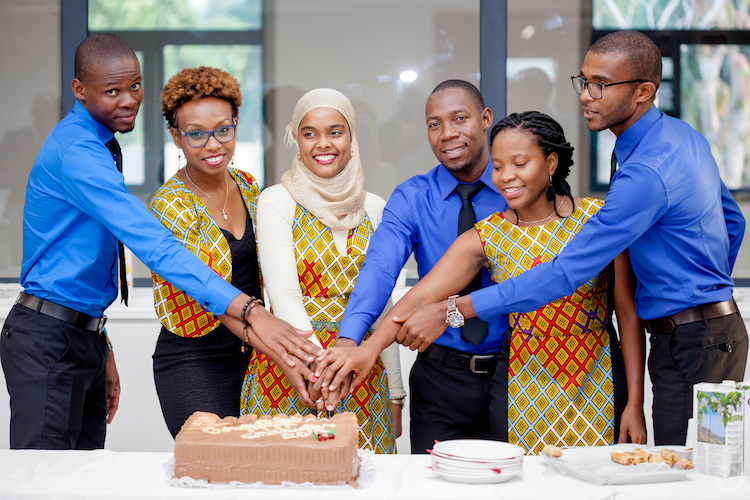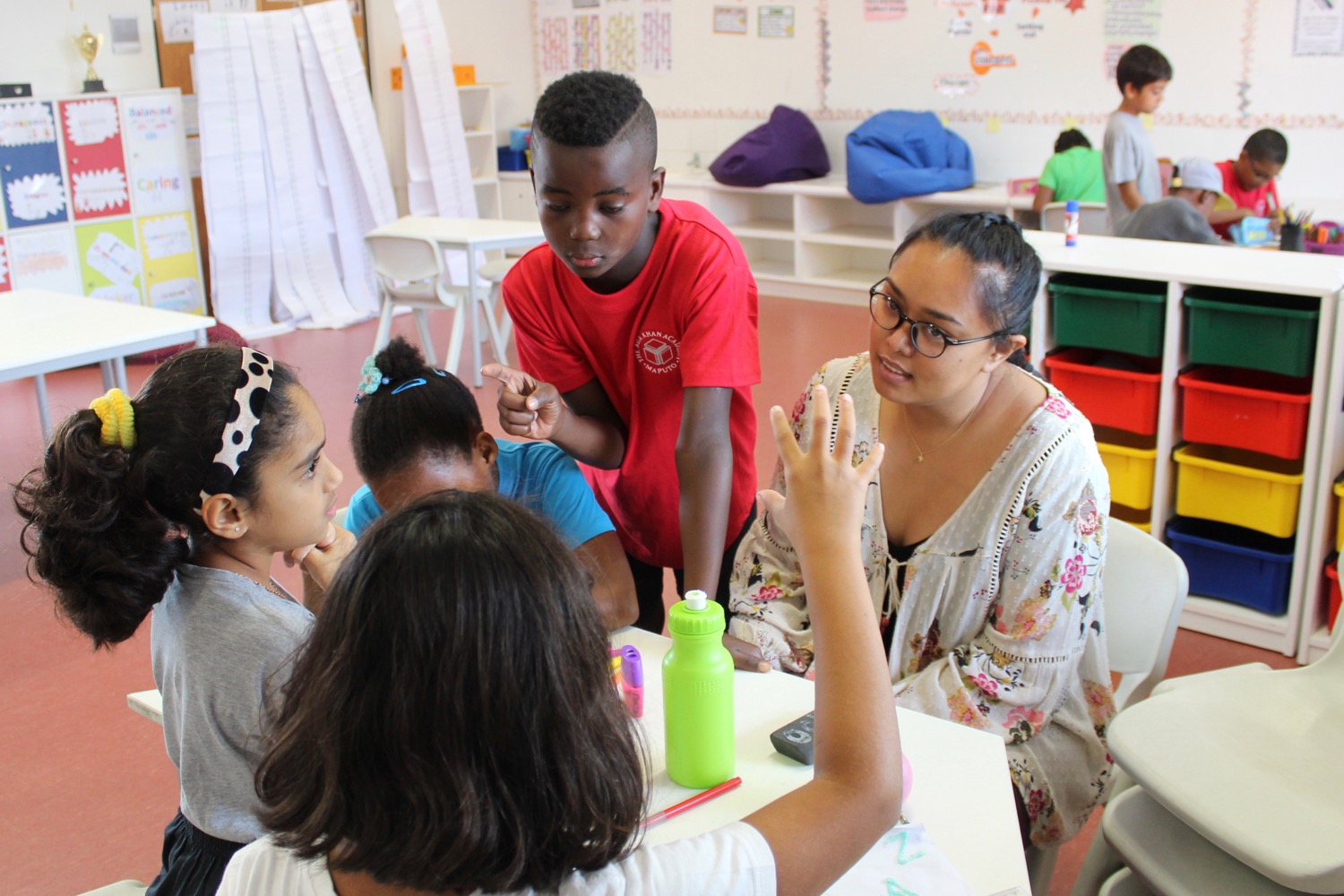Bernardo Arsénio: Inspired teacher with a mission
Bernardo learned from the Aga Khan Academies that knowledge cannot just be seen as something that starts and ends in a classroom, but that knowledge should also be applicable outside the classroom to solve real problems in real life.
Bernardo Arsénio’s journey to becoming a teacher started when he was in year 11 of his school in Maputo, Mozambique. He had a history teacher who used to make fun of him in the classroom. “He used to come to my desk and ask me what I was doing in his class,” Bernardo says. The teacher did that continuously throughout the year. This affected Bernardo’s performance and motivation to be in that class. He failed the class that year.
“But then I realised I could not let him win… I knew that I am supposed to be in class to learn and not to just let someone de-motivate me because he thinks I shouldn’t be there." Bernardo went to talk to his principal who allowed him to attend the class with the same teacher in spite of failing the class. Bernardo later realised that he had to change his attitude if his teacher did not change his. “So I started attending his class – I used to do all the assignments, tests and homework. I never missed even one class in the year,” he says. Bernardo’s constant efforts were noticed by the teacher – Bernardo even achieved the highest mark that year. In turn, the teacher’s attitude towards him changed for the better.
By giving an example from his life, Bernardo explains why a healthy relationship between a teacher and a student is so important. Having a teacher who does not care and does not motivate the students can have negative consequences. “It almost happened to me and I did not let it happen. I used the negative motivation to change it into a positive one – that inspired me to become a teacher,” he says vehemently.
Bernardo pursued History at Eduardo Mondlane University in Maputo. After graduating with a degree in History and a minor in Information Management in 2015, Bernardo began teaching history in a private school – Centro de Exames de Admissão. Desiring even more teaching skills, Bernardo took a six-month postgraduate course in 2016 at Universidade Pedagógica, specialising in teaching methodology.
After a rigorous selection process, Bernardo was one of six individuals who were given the opportunity for a year-long exchange at the Aga Khan Academy in Mombasa, Kenya as part of the Teacher Preparation Programme. “I was lucky to be in the group to come to Mombasa. That was when my journey started,” he says. At the Aga Khan Academy Mombasa, Bernardo went through three weeks of intensive English training. He humbly says, “We got support from each and every person in the Academy. To reach this level, for me to be able to communicate and to go to class and discuss a certain topic was all because we got so much help. I was challenged in class and felt I could not do it. When you feel you cannot do it, you think you are drowning but find yourself swimming and coming out of water; it was very meaningful.” Bernardo ended up teaching Humanities and History to students in Grades 6 to 9.
When he came to the Aga Khan Academy Mombasa, the first thing Bernardo noticed was how the students played an important role in their education and how they took the responsibility for their own education. He says, “Back at home, the environment is where the teacher owns the knowledge and dominates the classroom.” He also remembers going to a Theory of Knowledge class at the Academy and noticing how the students did not learn by rote but were encouraged to discuss and make sense of what was being taught. The method by which the class was taught thoroughly impressed him.
At the Aga Khan Academy Mombasa, Bernardo mentions how amazed he was to see such cultural and religious diversity. He took note of the unity with which everyone participated in school, for example by focusing on their similarities instead of their differences. He was also impressed with how sports classes were taught at the Academy, utilised as an opportunity for students to get together and learn about their similarities and differences. Bernardo found the people in Mombasa very warm and friendly and he did not feel far away from home.
Bernardo is now back in Mozambique, teaching at the Aga Khan Academy Maputo. He will continue to be a Humanities and History teacher and is helping support the growth of the Academy as they implement the International Baccalaureate (IB) Middle Years Programme. He strongly feels that a teacher should connect what is being taught to real life. For Bernardo, a teacher must motivate and support the students, and should enable students to develop and become better people.

Our Campus
Our Campus
The site was kindly donated by the Mozambican government to house the third in a network of about 18 planned Academies, which offer the highest international standard of education to students in countries across Africa, South and Central Asia, and the Middle East.
The Academy’s campus is being purpose-built to provide world-class facilities for students and staff. The Junior School, Early Years Centre, Senior School, Science Building and two residential buildings are now complete, and the construction of the Academy and Commons buildings is well underway.
The campus provides an ideal learning environment that includes:
 • Classrooms equipped with state-of-the-art technology to enhance collaboration, creativity, and inquiry learning
• Classrooms equipped with state-of-the-art technology to enhance collaboration, creativity, and inquiry learning
• Well-equipped libraries
• Extensive sports facilities
• Spaces for arts, music and performance
‘Saturday School’@ the Academy – 17 September 2016
Academy Junior School will celebrate International Dot Day this week with a global commemoration of creativity, courage and collaboration through creative activities.
PYP Exhibition – congratulations to all!
Grade 5 students exhibited their personal projects in this celebration of collaborative inquiry and sustainable action, marking the end of their journey in the PYP. Click here for pictures.
Parsons School of Design visiting from NYC - 1:45-3:15pm, Monday 4th Dec
In collaboration with Indian School of Design & Innovation - informative presentation for grades 10 & 11 visual arts students!
Idah Khan O'Neill: Playing a Vital Role in Teacher Effectiveness and Enhancement
Always an innovator, Idah and a colleague at the school incorporated playful learning in the school’s rigorous International Baccalaureate (IB) curriculum in their Primary 2 classrooms. According to the school’s newsletter, this pioneering method created “a rich environment where playful learning flourished in the school’s IB Curriculum.”
Reflecting back on a play unit in her classroom on family finances, Idah said what made it such a successful unit was that the children were not only learning curricular concepts and skills but were also deeply engaged in the process and were motivated to learn more. She added, “I think inquiry is most powerful when it is current and instant. So, when kids have an idea and you are feeling that idea, you cannot quite wait for next week for it to happen. You have got to give it your all for it to really take hold.”
Idah’s involvement as an educator started in Singapore where she was a Montessori school teacher for a number of years before moving to Jakarta, Indonesia where she opened a Montessori school. Having run the school for four years, Idah decided to move back to Singapore to work at the German European School as a Kindergarten teacher. Here she was assigned the role of PYP Coordinator for Kindergarten and was part of a guided management and teaching team.
Armed with a Bachelor’s degree in Early Childhood Studies from the University of Monash in Australia and an advanced diploma in Montessori Education, Idah is currently pursuing a Master’s Degree in Education at the online University of the People.
Highly self-motivated, Idah is fluent in English, Malay and Bahasa Indonesia. Additionally, she has good conversational proficiency in Mandarin and Danish. Now that she is in Mozambique, Idah says she is looking forward to learning Portuguese.
She relishes the IB programme and cherishes its effectiveness. She is a member of the International Baccalaureate Educator Network, a PYP School Visiting Team Member, PYP Curriculum Connections Service Provider, a PYP Curriculum Reviewer, and a PYP Workshop Leader.
Her volunteer work reflects her compassion and her caring for others. She was a volunteer teacher in Sumatra, Indonesia, and the United Kingdom. She also travelled to rural India looking at water conservation projects under the Aga Khan Foundation and developed a Unit of Inquiry On Water Use in the Aga Khan Academies and also in local schools.
Idah feels that with her new appointment at the Academy, she is getting closer to attaining her “reason for being” or her Ikigai. Ikigai, she explains, is a Japanese concept that is usually used to indicate the purpose in one's life or the things that make one's life worthwhile. She states that she would very much like to be part of His Highness the Aga Khan’s vision of the Academies, who on June 2004 said in Mozambique, “above all, it is my hope that these schools will stimulate creativity, intellectual curiosity and honest inquiry so that their students can adapt and thrive in a world of rapid change; can make informed judgments on life’s daily challenges, and place those judgments in an ethical framework.”
She feels she is very fortunate to be given this opportunity. “It is my mission, in my capacity as a Teacher Coach, to be able to help realize this goal through play and creativity with regards to the way we teach and learn.”



